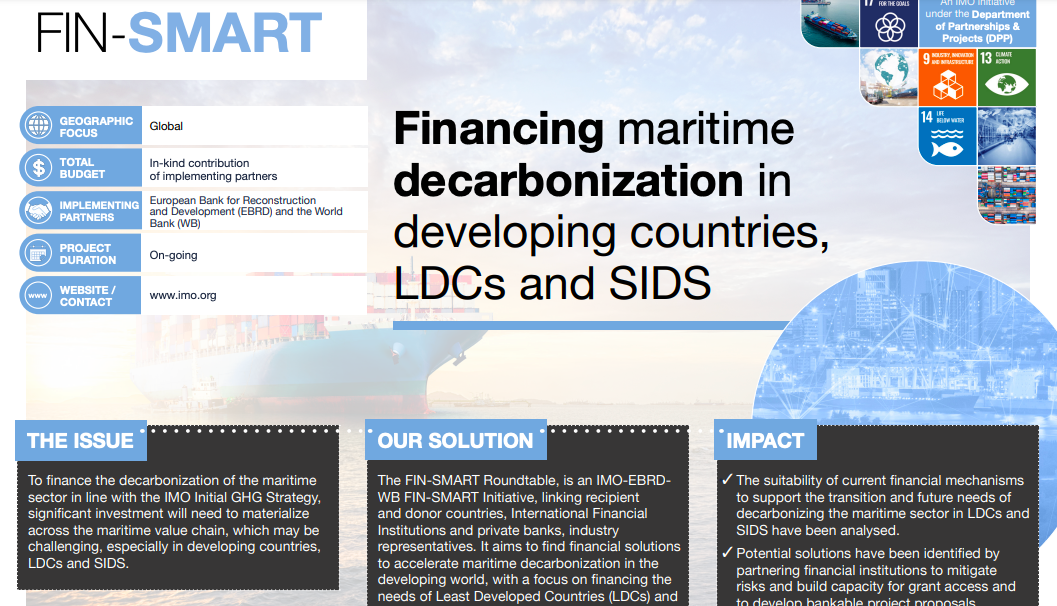Maritime decarbonization needs financial instruments, taking into account the needs of developing countries, to ensure no one is left behind. This message was highlighted during a panel debate at the World Oceans Summit on 1st of March which focused on financing shipping decarbonization.
IMO’s Gyorgyi Gurban said that pilots and trials of new technologies for shipping’s decarbonization were promising. Now, these pilots needed to be scaled up – and this needs investment from international finance institutions. Importantly, investment in technology development needs to ensure that research and development in the global north is shared with knowledge, research and development hubs of the global south.
IMO has set the policy framework for decarbonization, with mandatory energy efficiency measures already adopted and a revised GHG strategy set to be adopted in 2023. Additional regulatory measures could be adopted, but financial stakeholders should not wait for this to happen, Ms. Gurban said.
“If we don’t step up already now with this investment and continued pilot projects then we will be too late when the regulatory framework is fully fixed,” she said.
The FIN-SMART initiative is being implemented by IMO with the European Bank for Reconstruction and Development (EBRD) and the World Bank (WB), to link recipient and donor countries, International Financial Institutions and private banks and industry representatives. It aims to find financial solutions to accelerate maritime decarbonization in the developing world.
FIN-SMART has analyzed the suitability of current financial mechanisms to support the transition and future needs of decarbonizing the maritime sector in LDCs and SIDS. Potential solutions have been identified, which could include partnering financial institutions to mitigate risks and build capacity for grant access and to develop bankable project proposals.































































